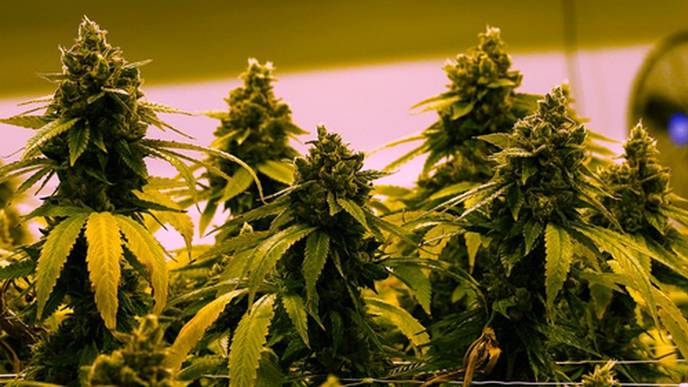ReachMD
Be part of the knowledge.™Study: 1 in 4 Adults with Chronic Pain Turning to Cannabis

Photo: Associated Press/Steve Helber
More than a quarter of U.S. adults suffering from chronic pain have turned to using cannabis to manage their discomfort, according to a new study published in JAMA Open Network.
Researchers at Michigan Medicine surveyed 1,661 adults last spring with chronic pain who lived in one of the 36 states with active medical cannabis programs and Washington, D.C.
About 26 percent of survey participants reported using cannabis within the past year to manage pain, researchers found.
Out of those people who said they consumed cannabis to help alleviate pain, more than half reported that the drug led to lower use of prescription opioids, nonopioids and over-the-counter pain medications.
Less than 1 percent said their cannabis use resulted in more opioid, non-opioid or over-the-the-counter pain medication use, according to the study.
About 39 percent of people who reported using cannabis to treat chronic pain said it led to them taking part in less physical therapy and 19 percent said it led to them meditating less in order to manage their pain, according to the study.
Meanwhile, 24 percent of people who used cannabis to treat chronic pain said their use resulted in them meditating more.
Another 26 percent said their cannabis use led to a decrease in the use of cognitive behavioral therapy, which is often used in combination with medication to treat chronic pain.
About 17 percent said their cannabis use actually led to them increasing their use of cognitive behavioral therapy as part of their pain-management regimen.
“The fact that patients report substituting cannabis for pain medications so much underscores the need for research on the benefits and risk of using cannabis for chronic pain,” said Mark Bicket, assistant professor in the Department of Anesthesiology and co-director of the Michigan Opioid Prescribing Engagement Network.
California became the first state to legalize medicinal cannabis in 1996 and since then 37 other states along with D.C., Guam and Puerto Rico have legalized and begun regulating cannabis for medical use.
Facebook Comments